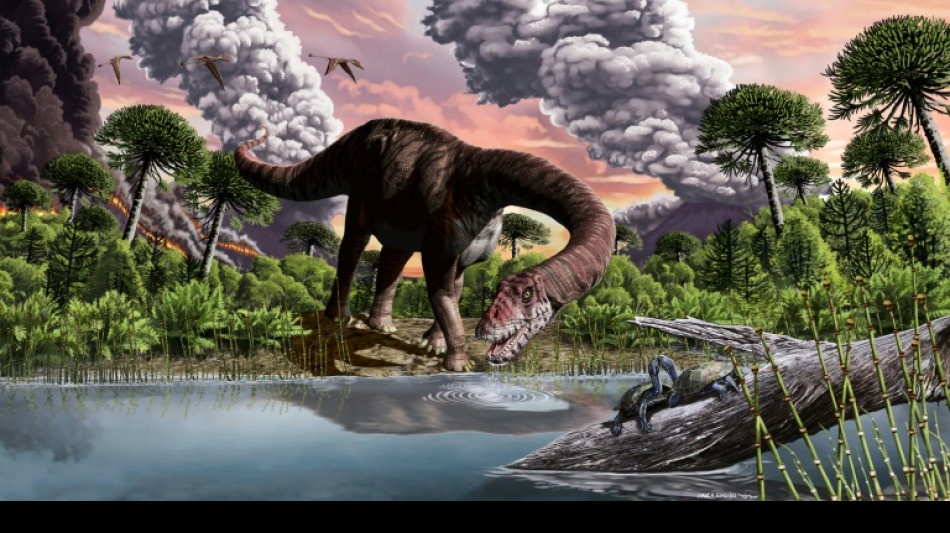
-
 Fans cheer for absent Ronaldo as Saudi row deepens
Fans cheer for absent Ronaldo as Saudi row deepens
-
Violence-ridden Haiti in limbo as transitional council wraps up
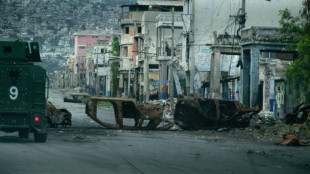
-
 Hundreds protest in Milan ahead of Winter Olympics
Hundreds protest in Milan ahead of Winter Olympics
-
Suspect in murder of Colombian footballer Escobar killed in Mexico

-
 Colombia's Rodriguez signs with MLS Minnesota United
Colombia's Rodriguez signs with MLS Minnesota United
-
Wainwright says England game still 'huge occasion' despite Welsh woes

-
 WADA shrugs off USA withholding dues
WADA shrugs off USA withholding dues
-
France detects Russia-linked Epstein smear attempt against Macron

-
 Winter Olympics to open with star-studded ceremony
Winter Olympics to open with star-studded ceremony
-
Trump posts, then deletes, racist clip of Obamas as monkeys
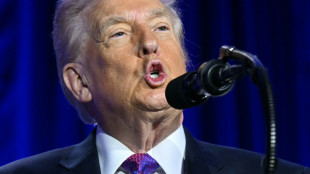
-
 Danone expands recall of infant formula batches in Europe
Danone expands recall of infant formula batches in Europe
-
Trump deletes racist video post of Obamas as monkeys
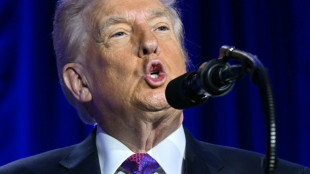
-
 Colombia's Rodriguez signs with MLS side Minnesota United
Colombia's Rodriguez signs with MLS side Minnesota United
-
UK police probing Mandelson after Epstein revelations search properties

-
 Russian drone hits Ukrainian animal shelter
Russian drone hits Ukrainian animal shelter
-
US says new nuclear deal should include China, accuses Beijing of secret tests

-
 French cycling hope Seixas dreaming of Tour de France debut
French cycling hope Seixas dreaming of Tour de France debut
-
France detects Russia-linked Epstein smear attempt against Macron: govt source

-
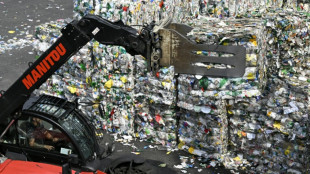 EU nations back chemical recycling for plastic bottles
EU nations back chemical recycling for plastic bottles
-
Terror at Friday prayers: witnesses describe blast rocking Islamabad mosque
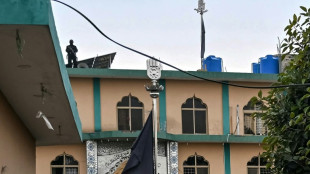
-
 Iran expects more US talks after 'positive atmosphere' in Oman
Iran expects more US talks after 'positive atmosphere' in Oman
-
US says 'key participant' in 2012 attack on Benghazi mission arrested
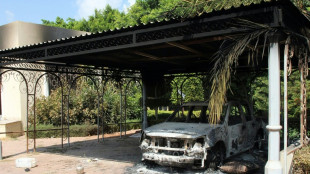
-
 Why bitcoin is losing its luster after stratospheric rise
Why bitcoin is losing its luster after stratospheric rise
-
Arteta apologises to Rosenior after disrespect row

-
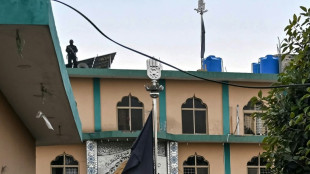 Terror at Friday prayers: witness describes 'extremely powerful' blast in Islamabad
Terror at Friday prayers: witness describes 'extremely powerful' blast in Islamabad
-
Winter Olympics men's downhill: Three things to watch
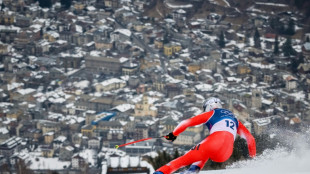
-
 Ice dancers Chock and Bates shine as US lead Japan in team event
Ice dancers Chock and Bates shine as US lead Japan in team event
-
Stellantis takes massive hit on 'overestimation' of EV demand

-
 Stocks rebound though tech stocks still suffer
Stocks rebound though tech stocks still suffer
-
Spanish PM urges caution as fresh rain heads for flood zone
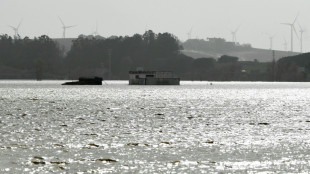
-
 Iran says to hold more talks with US despite Trump military threats
Iran says to hold more talks with US despite Trump military threats
-
Russia accuses Kyiv of gun attack on army general in Moscow

-
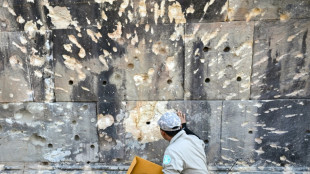 Cambodia reveals damage to UNESCO-listed temple after Thailand clashes
Cambodia reveals damage to UNESCO-listed temple after Thailand clashes
-
Norway crown princess 'deeply regrets' Epstein friendship

-
 Italy set for Winter Olympics opening ceremony as Vonn passes test
Italy set for Winter Olympics opening ceremony as Vonn passes test
-
England's Jacks says players back under-fire skipper Brook '100 percent'

-
 Carrick relishing Frank reunion as Man Utd host Spurs
Carrick relishing Frank reunion as Man Utd host Spurs
-
Farrell keeps the faith in Irish still being at rugby's top table

-
 Meloni, Vance hail 'shared values' amid pre-Olympic protests
Meloni, Vance hail 'shared values' amid pre-Olympic protests
-
Olympic freestyle champion Gremaud says passion for skiing carried her through dark times

-
 US urges new three-way nuclear deal with Russia and China
US urges new three-way nuclear deal with Russia and China
-
Indonesia landslide death toll rises to 74
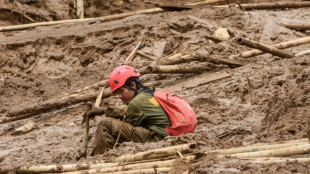
-
 Hemetsberger a 'happy psychopath' after final downhill training
Hemetsberger a 'happy psychopath' after final downhill training
-
Suicide blast at Islamabad mosque kills at least 31, wounds over 130

-
 Elton John accuses UK tabloids publisher of 'abhorrent' privacy breaches
Elton John accuses UK tabloids publisher of 'abhorrent' privacy breaches
-
Lindsey Vonn completes first downhill training run at Winter Olympics

-
 Digital euro delay could leave Europe vulnerable, ECB warns
Digital euro delay could leave Europe vulnerable, ECB warns
-
Feyi-Waboso out of England's Six Nations opener against Wales

-
 Newcastle manager Howe pleads for Woltemade patience
Newcastle manager Howe pleads for Woltemade patience
-
German exports to US plunge as tariffs exact heavy cost

| CMSC | 0.02% | 23.555 | $ | |
| BCC | 2.77% | 91.7 | $ | |
| SCS | 0.12% | 16.14 | $ | |
| NGG | 1.26% | 87.995 | $ | |
| BCE | -1.55% | 25.18 | $ | |
| RIO | 2.61% | 93.565 | $ | |
| CMSD | 0.17% | 23.93 | $ | |
| JRI | 0.54% | 12.95 | $ | |
| AZN | 3.45% | 193.855 | $ | |
| BTI | 1.33% | 62.795 | $ | |
| GSK | 1.94% | 60.34 | $ | |
| RYCEF | 1.54% | 16.88 | $ | |
| RBGPF | 0.12% | 82.5 | $ | |
| VOD | 3.21% | 15.105 | $ | |
| RELX | -2.49% | 29.36 | $ | |
| BP | 2.09% | 38.985 | $ |

Asteroid dust caused 15-year winter that killed dinosaurs: study
Around 66 million years ago, an asteroid bigger than Mount Everest smashed into Earth, killing off three quarters of all life on the planet -- including the dinosaurs.
This much we know.
But exactly how the impact of the asteroid Chicxulub caused all those animals to go extinct has remained a matter of debate.
The leading theory recently has been that sulphur from the asteroid's impact -- or soot from global wildfires it sparked -- blocked out the sky and plunged the world into a long, dark winter, killing all but the lucky few.
However research published Monday based on particles found at a key fossil site reasserted an earlier hypothesis: that the impact winter was caused by dust kicked up by the asteroid.
Fine silicate dust from pulverised rock would have stayed in the atmosphere for 15 years, dropping global temperatures by up to 15 degrees Celsius, researchers said in a study in the journal Nature Geoscience.
Back in 1980, father-and-son scientists Luis and Walter Alvarez first proposed that the dinosaurs were killed off by an asteroid strike that shrouded the world in dust.
Their claim was initially met with some scepticism -- until a decade later when the massive crater of Chicxulub was found in what is now the Yucatan Peninsula on the Gulf of Mexico.
Now, scientists largely agree that Chicxulub was to blame.
But the idea that it was sulphur, rather than dust, that caused the impact winter has become "very popular" in recent years, Ozgur Karatekin, a researcher at the Royal Observatory of Belgium, told AFP.
Study co-author Karatekin said this was because the dust from the impact was thought to be the wrong size to stay in the atmosphere for long enough.
For the study, the international team of researchers was able to measure dust particles thought to be from right after the asteroid struck.
- 'Catastrophic collapse' -
The particles were found at the Tanis fossil site in the US state of North Dakota.
Though 3,000 kilometres (1,865 miles) away from the crater, the site has preserved a number of remarkable finds believed to be dated from directly after the asteroid impact in sediment layers of an ancient lake.
The dust particles were around 0.8 to 8.0 micrometres -- just the right size to stick around in the atmosphere for up to 15 years, the researchers said.
Entering this data into climate models similar to those used for current-day Earth, the researchers determined that dust likely played a far greater role in the mass extinction than had previously been thought.
Out of all the material that was shot into the atmosphere by the asteroid, they estimated that it was 75 percent dust, 24 percent sulphur and one percent soot.
The dust particles "totally shut down photosynthesis" in plants for at least a year, causing a "catastrophic collapse" of life, Karatekin said.
Sean Gulick, a geophysicist at the University of Texas at Austin and not involved in the research, told AFP that the study was another interesting effort to answer the "hot question" -- what drove the impact winter -- but did not provide the definitive answer.
He emphasised that discovering what happened during the world's last mass extinction event was important not just for understanding the past, but also the future.
"Maybe we can better predict our own mass extinction that we're probably in the middle of," Gulick said.
R.Halabi--SF-PST



